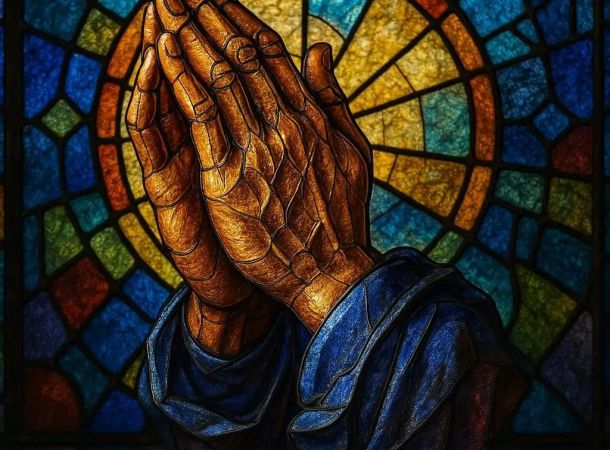Beast Of The Field
Long time no smell! To say that this year has been challenging would be a massive understatement. I don’t believe I am out of the woods yet, but I see the light peeking through, allowing me to return to my favorite form of worship: studying the Bible. This year, I decided to walk you through the Torah Portions and focus on identifying the multiple faces of evil to hopefully give us tools, helping us avoid some and overcome others.
On October 26th, we started reading from the beginning of the Bible, as we do every year after the Feast of Sukkot. This significant appointed time commemorates the Israelites’ journey through the wilderness, ending with the King on the throne and a divine betrothal (Lv 23.33-36). What enemies do we see in the Garden? Adam is the first enemy we find. He is a king who ruled without the wisdom of the Ruach HaKodesh or Holy Spirit. Adam could have become the serpent-beast king who led his family into exile from God’s presence. I could also make the case that a king of the nations pierced into the Garden of Eden representing divine space for God’s appointed king and queen to cause a rebellion. The Bible does not explicitly state these theories. However, it does tell us that the serpent beast was not celestial. The scriptures describe celestial beings as spirits.
Hebrews 1:13-14: But to which of the angels has He ever said, “Sit at My right hand, until I make Your enemies a footstool for Your feet”? Are they not all ministering spirits sent forth to minister for those who will inherit salvation?
Psalm 104:4: Who makes His angels spirits, His ministers a flame of fire.
In Genesis 3:1, the serpent is called a “beast of the field.” The Bible describes beasts as wholly made of the earth. God also formed humanity out of the earth; however, we also have the divine breath, or Holy Spirit, which separates us from the beasts if we obey Its voice (Gn 2.7).
Genesis 1:24: Then God said, “Let the earth bring forth the living creature according to its kind: cattle and creeping thing and beast of the earth, each according to its kind,” and it was so. (all bold accents added)
Genesis 1:26: Then God said, “Let Us make man in Our image, according to Our likeness; let them have dominion over the fish of the sea, over the birds of the air, and over the cattle, over all the earth and over every creeping thing that creeps on the earth.”
A careful reading of the above verse shows us that Adam was not explicitly given dominion over the “beast” the earth produced. Personally, this is because, on the sixth day of creation, God created kings. Why do I believe the beast is a king?
Revelation 16:10: Then the fifth angel poured out his bowl on the throne of the beast, and his kingdom was plunged into darkness. People gnawed their tongues in pain.
Beasts have kingdoms and thrones, but the Scriptures never describe celestial beings as kings. He gave dominion to Adam or humans (Psalm 8). So, our first enemy is a king or ruler who leads us into exile from God’s presence. Using this framework, Adam plants a seed of doubt in his wife. We know he was with her because she took the fruit and gave it to her husband (Gn 3.6).
Understand that if translated as the Son of Adam (literally man or human), the Son of Man plants the kingdom’s seed (words/instruction according to Luke 8:11). Celestial beings obey God’s commandments, but they don’t plant them in our hearts. Adam did not establish God’s words as truth by obeying and teaching them becoming the Father of Unfaithfulness.
Here are the two Adams: the first Adam refers to the first God-ordained king placed in the Garden of Eden who ended up under the Tree of Knowledge of Good and Evil, and the last Adam refers to Yeshua, the King who ended up under the Tree of Life (Rv 2.7).
The first Adam planted the seed of the kingdom of the flesh, or the kingdom of man, ruled by beastly kings who reign by the power of their earthly nature. Yeshua planted the seed of the Kingdom of God, who ruled over His earthly nature by obeying the voice of the Spirit (Mt 13.37).
The first Adam quickened or gave life to the nefesh or the earthly nature, and Yeshua gives life to our Spirit nature (1 Cor 15.45).
The first Adam disobeyed God’s instructions. (1 Jn 3.4) Yeshua obeyed God’s voice unto death (Ph 2.8).
The first Adam led those under his influence away from God’s presence (Gn 3:23-24). Yeshua leads those who follow Him to the very throne of God (Hb 4.16).
The first Adam symbolizes a king who became proud and wanted to be God rather than submit to Him (Gn 3.5). Yeshua, the last Adam, reflects the image of a humble king who gives His life for, protects, sustains, and leads the kingdom’s subjects to the Holy One (Jn 4.23-24).
The first Adam brought sin into the world, another enemy (Rm 5.12). Yeshua defeated sin by ruling over it through obedience to God’s instructions. This triumph shows us that the Spirit is stronger than the flesh (Rm 6).
The first Adam produced sin, which ended in death, the last enemy that Yeshua defeated (1 Cor. 15.26).
The first humans that God placed as king and queen over the creation incurred the curses of labor, pain, and exile. Chavah’s curse was that she would not produce life without pain, labor, and suffering, and Adam’s curse was that he would not eat the earth’s produce without pain, labor, and suffering.
The serpent beast is cast down just like many self-exalted kings further on in God’s story.
Yeshua endured the pain, labor, and suffering of living to the Spirit, denying self-gratification and humbly walking with God and others to produce life for us. His work of atonement, where He is a human offering of obedience, truth, a pure nefesh or earthly nature, and humility, allows us to freely eat the fruit of the Kingdom of God (Rv 2.7)(Gal. 5:22-23). He undid all of the curses begun in the Garden. Yeshua redeems our broken spirits that produce deceitful words (Pr 15.4) through forgiveness. He frees us from captivity to sin and tyrannical rulers who lead us toward exile from God’s presence and gives us the choice to serve Him out of love. Yeshua overcame death, giving us hope that it is only a new beginning when we die. The Bible describes every enemy we wrestle with in the first three chapters of the Bible. Pride, sin, the consequence of sin, which is death, rebellion, ungodly rulers, and those who plant seeds of disobedience in others consolidate our internal and external enemies. Yeshua is the remedy for all of them. A righteous king will always defeat our enemies to bring us into a Shabbat rest, humbly drawing us closer to the Heavenly Father while sustaining us and strengthening us to choose life.




This is a wonderful explanation of my curiosity about the beast of the field
I am so glad you enjoyed it. 😊